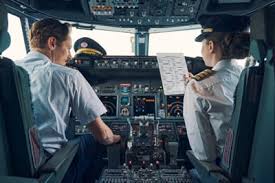Two major international airlines, GOL Airlines from Brazil and TAP Air Portugal, have become the first carriers in the world to start using a new fuel efficiency and carbon tracking platform developed by the International Air Transport Association (IATA). The platform is called FuelIS, and it is aimed at helping airlines reduce fuel consumption, manage operational costs, and improve their environmental performance.
This was disclosed by IATA in a statement released on Tuesday. According to the global airline body, the new FuelIS platform is a modern analytics tool designed to help airline operators identify where they are wasting fuel and how they can make better fuel decisions. IATA said it hopes the platform will become a major part of the global aviation industry’s efforts to cut down on carbon emissions and save money.
Fuel is one of the most expensive parts of running an airline. It is estimated to take up between 25 to 30 per cent of an airline’s operating costs, depending on the current price of jet fuel. In addition to this cost burden, burning jet fuel also contributes significantly to carbon emissions, which many airlines are now trying to reduce as part of global climate goals.
IATA’s Senior Vice President for Operations, Safety, and Security, Nick Careen, said FuelIS will give airlines the data and insight they need to make better fuel-related decisions. He explained that with more than 220 airlines contributing real-time fuel data into the system, FuelIS will help carriers compare their performance with others in the industry, and easily spot areas where they can improve.
“Fuel management is very important for airlines. As the industry works towards decarbonisation, it becomes even more important to track and manage the carbon costs, which are tied directly to fuel use,” Careen said. “FuelIS helps airlines measure themselves against their peers and identify ways to be more efficient.”
TAP Air Portugal, one of the first airlines to join the platform, said FuelIS fits well with its long-term plans to reduce costs and achieve cleaner operations. The Chief Executive Officer of TAP Air Portugal, Luís Rodrigues, said the airline sees the tool as a useful way to measure how its newer planes are performing and how its future transition to sustainable aviation fuel (SAF) is working out.
“Fuel is a major cost for us. Managing our fuel consumption is important not just for our expenses, but also for our contribution to reducing emissions,” Rodrigues said. “Every kilogramme of fuel we save makes a difference. The data we get from FuelIS shows us the real impact of our decisions and helps us plan better.”
GOL Airlines, another early adopter of the platform, also praised the move. The Chief Operating Officer of GOL, Mr Albert Pérez, said the tool allows them to make better fuel decisions and monitor their performance using real data and industry benchmarks.
“Fuel is a big cost for any airline. Managing how we use it is important and gives us an edge. With FuelIS, we now have the data to improve our fuel strategy,” he said.
IATA also noted that FuelIS is part of the broader roadmap to reach Net Zero carbon emissions by 2050. According to IATA, about 10 per cent of the emissions reduction needed will come from better operations and technology. The rest will have to come from sustainable aviation fuel, carbon offsetting, and new aircraft designs that are less polluting.
The aviation industry, which contributes about 2 to 3 per cent of global carbon emissions, is under increasing pressure from governments, investors, and the public to take strong action on climate change. Tools like FuelIS are seen as one of the ways airlines can make measurable progress while also improving their financial performance.
IATA believes that as more airlines join the platform and share their fuel data, the system will become more powerful. The goal is to help airlines all over the world cut down on fuel waste, reduce carbon emissions, and save money at the same time.
